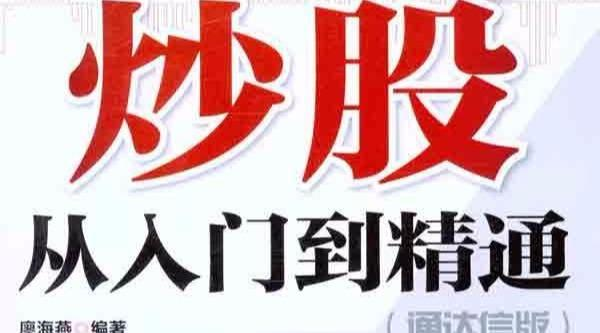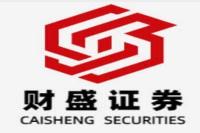The Fall of a Tungsten Titan: Unpacking the Corruption Case Against Zou Fensheng
Meta Description: Deep dive into the high-profile corruption case against Zou Fensheng, former chairman of Jiangxi Tungsten Industry Holdings Group Co., Ltd. Explore the intricacies of the investigation, the legal proceedings, and the implications for China's anti-corruption efforts. Includes expert analysis and insights into the complexities of corporate governance and state-owned enterprises (SOEs) in China. #Corruption #China #SOE #AntiCorruption #TungstenIndustry #LegalProceedings #ZouFensheng #JiangxiTungsten
Imagine this: you're at the helm of a massive state-owned enterprise, a titan of the tungsten industry, wielding significant power and influence. The world of high finance and political connections stretches before you, a seemingly endless landscape of opportunity. But what happens when the lines between personal gain and public duty blur? What happens when the pursuit of wealth overshadows the responsibility entrusted to you? The case of Zou Fensheng, former chairman of Jiangxi Tungsten Industry Holdings Group Co., Ltd., offers a chilling, real-world example of this very scenario. His arrest on bribery charges sends shockwaves through China's corporate landscape, raising critical questions about corporate governance, the effectiveness of anti-corruption measures, and the broader implications for SOEs. This isn't just another corporate scandal; it's a microcosm of the ongoing battle against corruption within China's complex economic and political system. This in-depth analysis delves into the intricacies of the Zou Fensheng case, examining the evidence, exploring the legal procedures, and analyzing the wider context of this significant event. Prepare to be captivated by the twists and turns of a story that reveals the dark underbelly of power, ambition, and the relentless pursuit of wealth. We'll unpack the details, expose the complexities, and offer insightful analysis, leaving no stone unturned in our quest to understand this compelling case. Get ready for a gripping narrative that intertwines legal intricacies with broader economic and political realities.
The Zou Fensheng Case: A Deep Dive into the Allegations
The arrest of Zou Fensheng, former party secretary and chairman of Jiangxi Tungsten Industry Holdings Group Co., Ltd. (hereinafter referred to as "Jiangxi Tungsten"), on bribery charges marks a significant development in China's ongoing anti-corruption campaign. The sheer scale of Jiangxi Tungsten, a major player in the global tungsten market, underscores the gravity of the situation. The investigation, led by the Jiangxi Provincial Supervisory Commission and culminating in an arrest by the Ganzhou People's Procuratorate, highlights the authorities' determination to tackle corruption at the highest levels.
So, what exactly are the allegations against Zou Fensheng? While specifics remain scarce pending the ongoing legal proceedings, the official announcement from the Supreme People's Procuratorate clearly states the charges: bribery. This suggests a pattern of illicit enrichment, potentially involving the exchange of favors and preferential treatment in return for monetary or other benefits. The investigation likely involved meticulous scrutiny of financial records, witness testimonies, and potentially even wiretaps. Given the nature of SOEs in China, the possibilities for corruption are unfortunately numerous, from inflated contracts and sweetheart deals to embezzlement and asset misappropriation. We can expect a thorough examination of Zou Fensheng's financial dealings during his tenure at Jiangxi Tungsten, comparing his personal wealth accumulation with his declared income. This is where forensic accounting expertise will play a crucial role in building a robust case against him.
The legal process itself will be rigorous, following established procedures within the Chinese legal system. While the presumption of innocence prevails, the evidence gathered by the investigative authorities will be subjected to intense scrutiny during the trial. The prosecution will need to present compelling evidence beyond a reasonable doubt to secure a conviction. This could include documentation, witness statements, and expert testimony. The defense, naturally, will challenge the prosecution's claims and attempt to discredit any potentially questionable evidence.
The Implications for China's Anti-Corruption Drive
The Zou Fensheng case is not an isolated incident. It’s a stark reminder of the persistent challenges China faces in combating corruption within its state-owned enterprises. The sheer size and complexity of SOEs, coupled with opaque governance structures in some instances, create fertile ground for corruption to flourish. This case serves as a powerful symbol of the ongoing struggle. The government's commitment to rooting out corruption, however, is undeniable. The high-profile nature of this prosecution demonstrates the determination to hold even powerful figures accountable, regardless of their position or connections. The success or failure of this case will have significant implications for investor confidence and the overall health of China's economy.
The Tungsten Industry's Reaction
The tungsten industry itself will be closely watching the unfolding events. The integrity of the market relies on transparency and fair competition. A high-profile corruption case like this can undermine investor confidence and potentially disrupt market dynamics. While Jiangxi Tungsten is a significant player, the impact on the broader industry will depend on the extent to which the alleged corruption affected market practices.
Understanding SOEs in China
State-owned enterprises (SOEs) play a critical role in the Chinese economy. They often dominate key sectors, from energy and finance to heavy industry. While they contribute significantly to national development, their traditional governance structures have, at times, been criticized for a lack of transparency and accountability. This case highlights the need for ongoing reforms to improve corporate governance within SOEs, enhancing transparency, strengthening internal controls, and fostering a culture of ethical conduct. International best practices in corporate governance could provide valuable lessons, but adapting them to the Chinese context requires careful consideration.
The Future of Jiangxi Tungsten
The future of Jiangxi Tungsten hangs in the balance, pending the outcome of the Zou Fensheng case. The company's reputation has undoubtedly been tarnished, and it faces the challenge of rebuilding trust among investors, partners, and the public. Effective corporate governance reforms are crucial for regaining confidence and ensuring long-term sustainability. Independent audits, enhanced transparency, and robust internal controls will be essential steps in this process. This is a critical moment for Jiangxi Tungsten; its response will determine whether it can navigate this crisis and emerge stronger.
Frequently Asked Questions (FAQs)
Q1: What is the likely penalty for Zou Fensheng if convicted?
A1: The penalty will depend on the specifics of the charges and the evidence presented. Bribery in China carries significant penalties, ranging from lengthy prison sentences to substantial fines and asset forfeiture. The severity of the punishment will reflect the scale of the alleged corruption.
Q2: How transparent is the Chinese legal process in this kind of case?
A2: While the Chinese legal system has made strides towards greater transparency, access to detailed information during ongoing investigations and trials may be limited. Official announcements often provide summaries, but the full extent of the evidence may not be publicly available until the conclusion of the legal proceedings.
Q3: What impact will this case have on foreign investment in China?
A3: This case could impact foreign investment perceptions, especially regarding SOEs. Increased transparency and accountability measures could boost confidence, but conversely, lingering concerns about corruption could deter some investors.
Q4: What measures are being taken to prevent similar scandals in the future?
A4: The Chinese government is actively working on strengthening anti-corruption measures, promoting improved corporate governance within SOEs, and enhancing transparency and accountability. These measures are likely to include stricter regulations, increased oversight, and greater emphasis on ethical conduct.
Q5: What role does the Communist Party play in this case?
A5: The Communist Party plays a significant role in the governance of SOEs in China. The party's disciplinary bodies are often involved in investigations of corruption within these companies. The investigation and prosecution of Zou Fensheng highlight the Party's commitment to combating corruption within its own ranks.
Q6: What’s the significance of the case being handled by the Ganzhou People's Procuratorate?
A6: The designation of the Ganzhou People's Procuratorate reflects a deliberate effort to ensure impartiality and avoid any perception of bias. This decision is in line with standard procedures to secure a fair and just outcome.
Conclusion: A Watershed Moment?
The Zou Fensheng case is more than just a single instance of alleged corruption; it's a symptom of deeper systemic issues within China's SOE sector. While the outcome remains uncertain, the very fact that such a high-profile figure is facing prosecution sends a strong message. This serves as a potent reminder that no one is above the law, and the ongoing battle against corruption is far from over. The case's ultimate resolution will be closely watched, not only within China but also internationally, offering valuable insights into the country's evolving approach to corporate governance and its unwavering commitment to tackling corruption at all levels. The legacy of this case will be determined by the extent to which it leads to meaningful reforms and a more transparent and accountable business environment in China. Only time will tell if this serves as a genuine watershed moment in China's ongoing fight against corruption.



